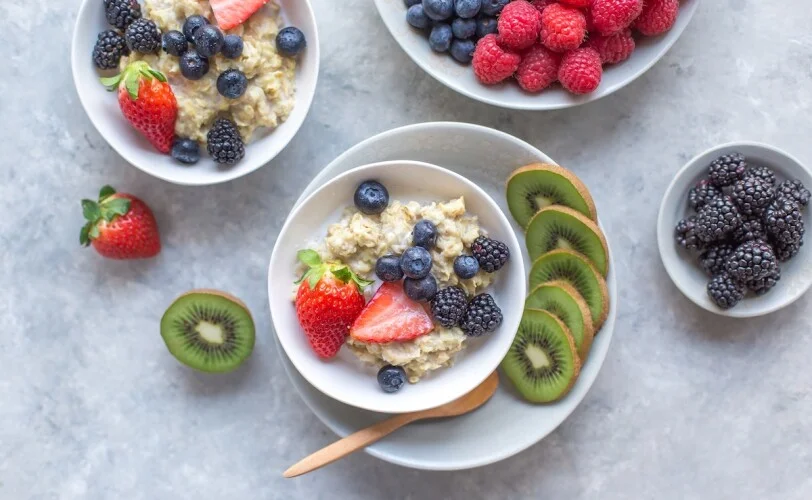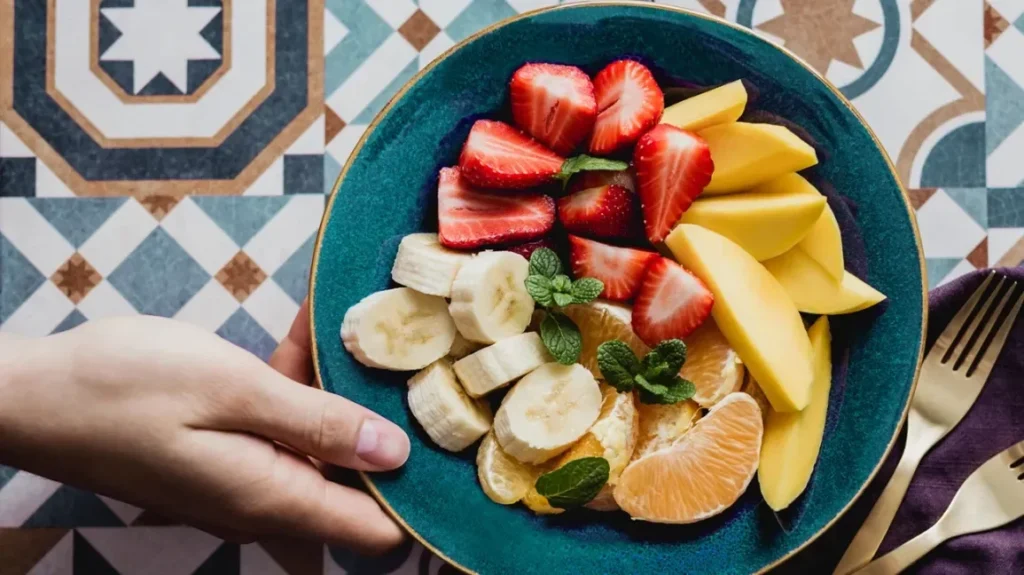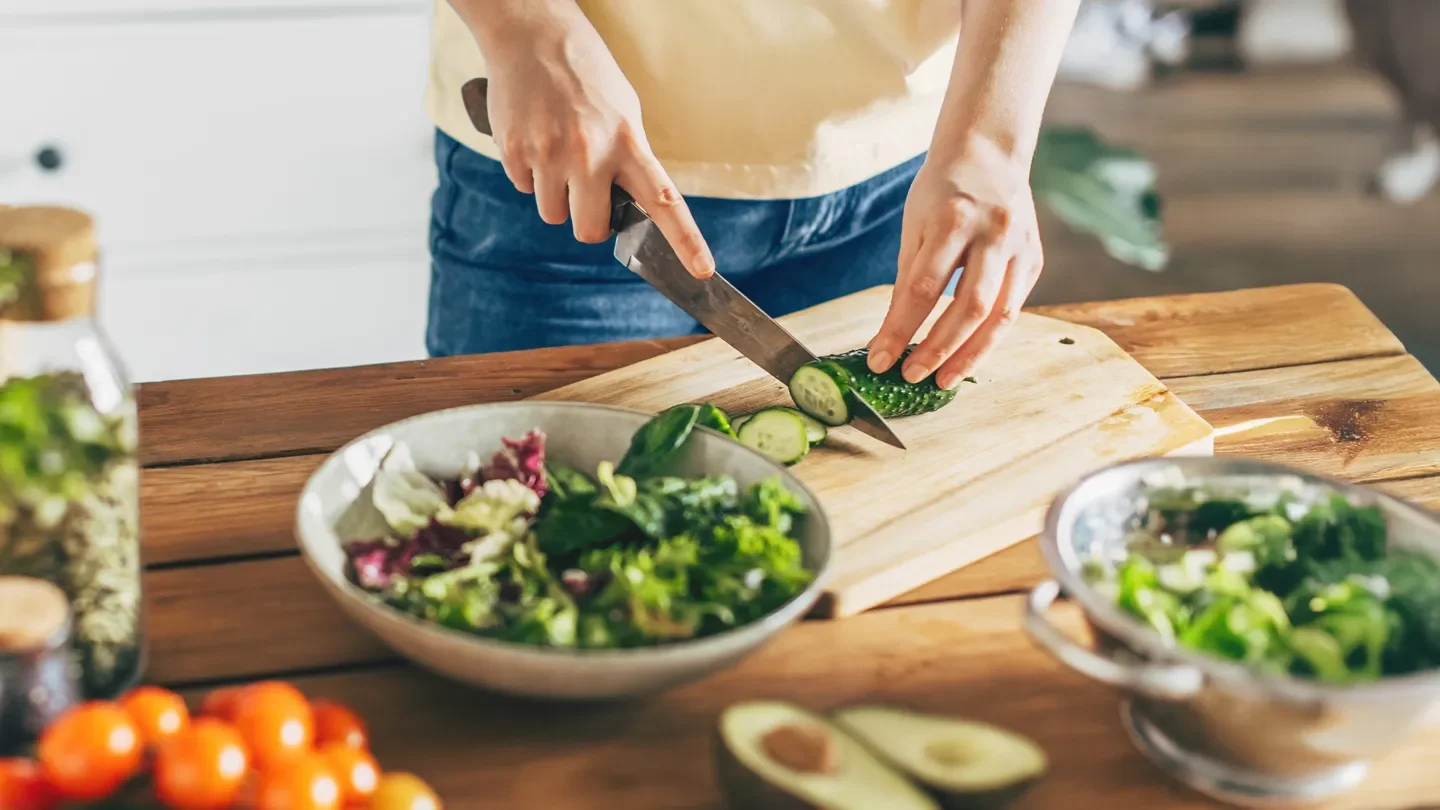Learning how to eat more healthy doesn’t have to be confusing or restrictive. You don’t need to follow extreme diets or count every calorie. Small, consistent changes make a big difference.
Healthy eating is about choosing real, whole foods more often and reducing processed ones. It’s not about perfection. It’s about building better habits that fit your lifestyle. With time, these small steps lead to lasting results.
This guide will help you make smarter choices, even with a busy schedule. From grocery tips to mindful eating, everything here is realistic and straightforward. Let’s explore how to eat better without the stress.
How to Eat More Healthy by Fixing Your Grocery Habits

Your eating habits begin before your first bite at the grocery store. When your kitchen is filled with healthy ingredients, making better food choices becomes second nature. Stick to the outer aisles of the store, where fresh items are typically kept, and avoid buying heavily processed items that fill up your pantry with unnecessary junk.
Choose real foods: colourful fruits, seasonal vegetables, whole grains, and protein sources like fish, chicken, and beans. Reading food labels helps you avoid added sugars, sodium, and artificial ingredients. Shopping smart lays the foundation for a healthy lifestyle.
Wise Meal Choices: The Key to Eating Healthier Without Dieting

Instead of completely changing your diet, make minor upgrades to your existing meals. Replace refined carbs with whole grains. Choose lean meats instead of fatty cuts. Add vegetables wherever you can think: spinach in eggs or bell peppers in pasta.
These subtle swaps can make a big difference over time. And they’re easy to maintain because they don’t force you to give anything up completely.
Here are some everyday changes that support your healthy eating journey:
- Swap white bread for whole-grain or multigrain bread.
- Add veggies to your favourite dishes for extra nutrients.
- Cook more meals at home where you control ingredients.
- Grill or bake instead of frying.
- Keep junk food out of reach to avoid temptation.
Master Portion Control to Support Better Eating Habits
Portion control is often overlooked, yet it has a significant impact on your health. Overeating, even healthy foods, can still lead to weight gain. Learning to manage portions is a key part of better eating.
Start by using smaller plates to naturally reduce the amount you serve. Chew slowly and take breaks to give your body time to feel full. This simple habit helps you avoid mindless overeating.
Stop eating when you’re about 80% full instead of stuffed. Over time, your body will adjust and signal hunger more clearly. Portion control helps you listen to your proper hunger cues.
Stay Hydrated to Support Your Healthy Eating Goals
Water plays a significant role in your overall health and eating habits. It helps your body digest food properly and absorb nutrients better. Staying hydrated also helps maintain steady energy levels throughout the day.
Many people mistake thirst for hunger and end up eating when they’re just dehydrated. Drinking water before meals can reduce overeating and cravings. It’s a simple habit that supports weight control naturally.
Start your morning with a full glass of water and keep a bottle with you throughout the day. Sip water regularly rather than waiting until you feel thirsty. Add lemon, mint, or cucumber for a fresh and tasty boost.
How to Eat More Healthy When You’re Busy or Always on the Go
Busy schedules often lead to skipped meals or fast food, but planning keeps you on track. With a bit of preparation, healthy eating becomes effortless, even during hectic weeks. Prepare your meals in batches, pack healthy snacks, and use meal-prep containers to save time and stay consistent.
Helpful planning habits include:
- Cook large meals on weekends and portion them for the week.
- Keep healthy grab-and-go snacks, such as fruit or boiled eggs.
- Pack lunches instead of eating out.
- Freeze leftovers for emergency meals.
- Create a weekly meal plan to stay organised and on track.
Listen to Your Cravings Without Giving In to Them Completely
It’s okay to crave sweets or salty snacks, but there’s a difference between craving and binging. Instead of fighting cravings, learn to satisfy them in small, controlled ways. This helps reduce guilt and prevents full-on binges later.
Sometimes, cravings are emotional. Take a moment to ask yourself if you’re hungry or just stressed. Distract your mind with a walk, drink water, or opt for a healthier alternative to your craving.
Eating Mindfully: How to Eat More Healthy Without Tracking Every Bite
Mindful eating means paying full attention to your meals and savouring each bite. Avoid distractions like TV or scrolling through your phone. Focus on flavours, textures, and how your body feels.
Chew your food slowly and take your time with each bite. This simple habit helps you enjoy meals more and avoid overeating. Eating becomes an experience, not just a routine.
Mindfulness also improves portion control by helping you recognize when you are full. It’s not just about what you eat, but how and why you eat it. When you eat with intention, you eat with balance.
Redefining Snacks: Healthy Doesn’t Mean Boring
You don’t need to avoid snacks; you just need better ones. The right snacks help keep your energy up, reduce the likelihood of overeating later, and support your overall health. A mix of protein, fibre, and healthy fats will keep you satisfied between meals.
Innovative snacking options include:
- Greek yoghurt with berries
- A handful of almonds or walnuts
- Sliced apples with peanut butter
- Air-popped popcorn with olive oil
- Cottage cheese with pineapple
Thinking you need to be “perfect” to be healthy often leads to failure. Instead, focus on progress, not perfection. It’s okay to have pizza on a Friday or dessert on a birthday. What matters is what you do most of the time, not just occasionally.
When healthy eating becomes part of your lifestyle rather than a short-term fix, it becomes easier and more sustainable. Balance and flexibility make the difference between burnout and long-term success.
Healthy eating is not about being perfect; it’s about being consistent. Focus on progress, not strict rules or diets. Small changes, over time, lead to big results.
Listening to your body helps you build better habits naturally. Eat when you’re hungry, stop when you’re full, and enjoy every bite. Trust the process and stay patient.
Don’t stress about occasional treats or slip-ups. A balanced approach keeps your mind and body in harmony. What matters most is what you do regularly, not occasionally.
By learning to eat healthier, you’re investing in a better future. Your energy, mood, and overall well-being will thank you. Keep it simple, sustainable, and satisfying.










